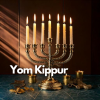army judge
Super Moderator

WASHINGTON — Yom Kippur is the holiest day on the Jewish calendar and also one of the most somber commemorations of the year.
It marks the end of the "Days of Awe," a 10-day period that begins on Rosh Hashanah, the other main High Holy Day which celebrates the Jewish New Year.
Yom Kippur in English means "Day of Atonement" and focuses on repentance and asking forgiveness for wrongs that may have been committed over the past year.
Jewish adults observing the holiday typically will fast for around 25 hours (starting at sundown the night before). However, Jewish teaching explains that anyone whose health may be at risk by fasting is exempt and should still eat and drink water on Yom Kippur.
The Jewish calendar is based primarily on the moon and the Gregorian calendar is based on the sun, which is why it can feel like the holidays are sometimes "late" or "early" in the U.S. However, Rosh Hashanah and Yom Kippur are always observed on the same days on the Jewish calendar.
Yom Kippur officially ends following the last blowing of a ram's horn, or shofar, during Neilah, which is the closing service. Traditionally, people will gather together for a break-fast meal after Yom Kippur ends.
When does Yom Kippur begin?
This year, it begins at sundown on Friday, Oct. 11, 2024.What time does Yom Kippur end in 2024?
Yom Kippur officially ends at nightfall on Saturday, Oct. 12. The exact timing will depend on your location.Is Yom Kippur a federal holiday?
No, Yom Kippur is not a federal holiday in the United States.What do you say to someone on Yom Kippur?
Yom Kippur is a somber holiday, so you shouldn't tell someone "Happy Yom Kippur."Instead, you could tell someone to "have an easy fast." Some have recently taken to instead wishing people a "meaningful fast." This recognizes that the fasting on Yom Kippur is not necessarily supposed to be an easy task.
Another traditional greeting is "G'mar chatima tova" (pronounced gih-MAR chah-tee-MAH toe-VAH), which basically means "May you be inscribed in the Book of Life for good." In Jewish tradition it is believed one's fate is decided on Rosh Hashanah and sealed on Yom Kippur.

What is Yom Kippur? What you need to know about Judaism's holiest day of the year
Yom Kippur is part of the Jewish high holy days, but you shouldn't tell someone "Happy Yom Kippur." Here's what you need to know about the somber commemoration.
